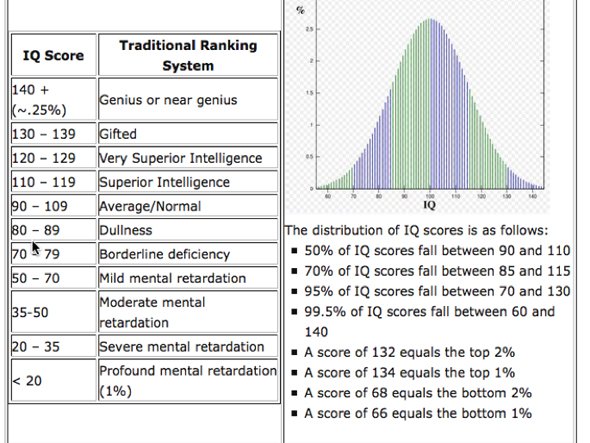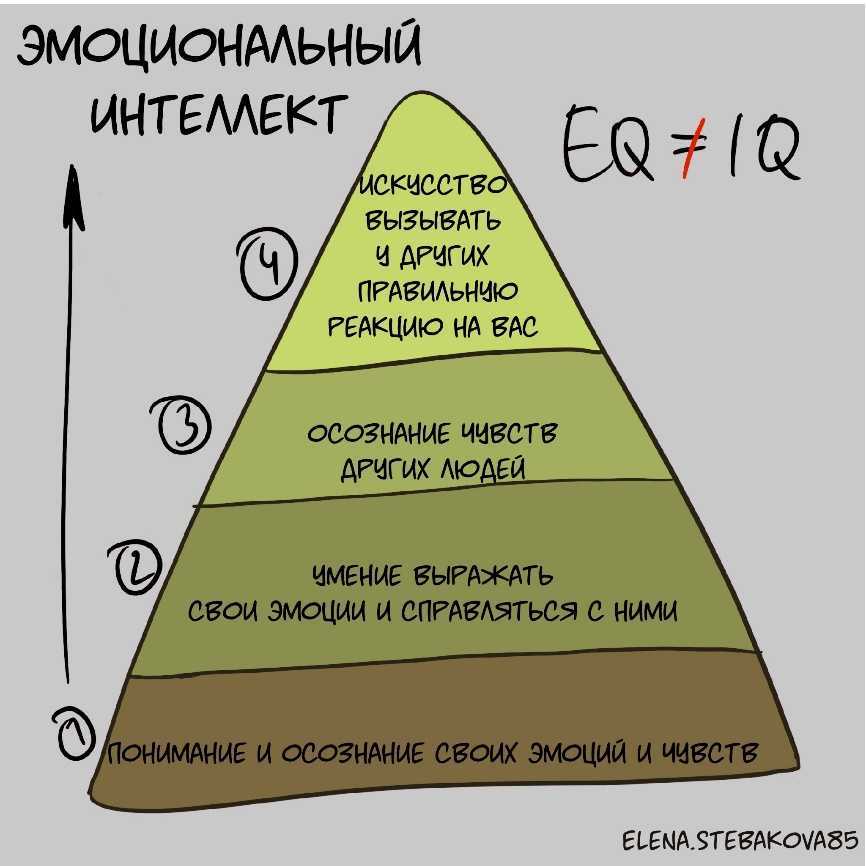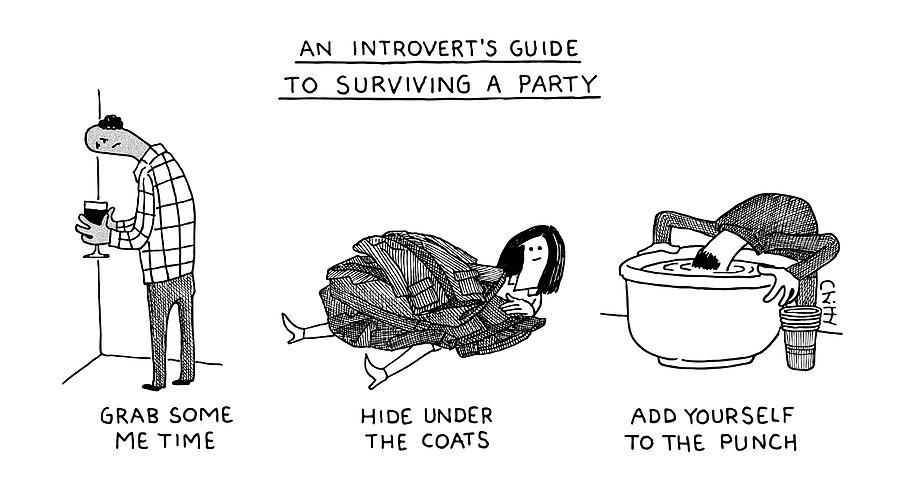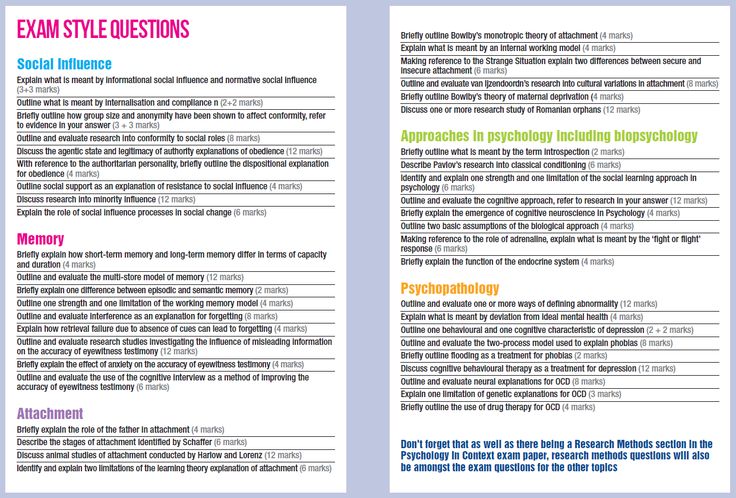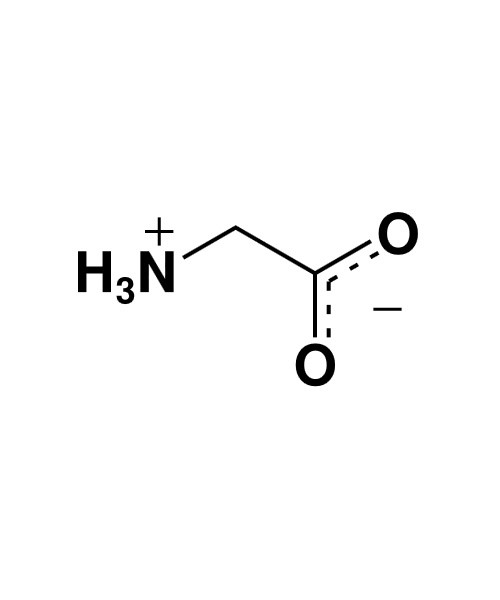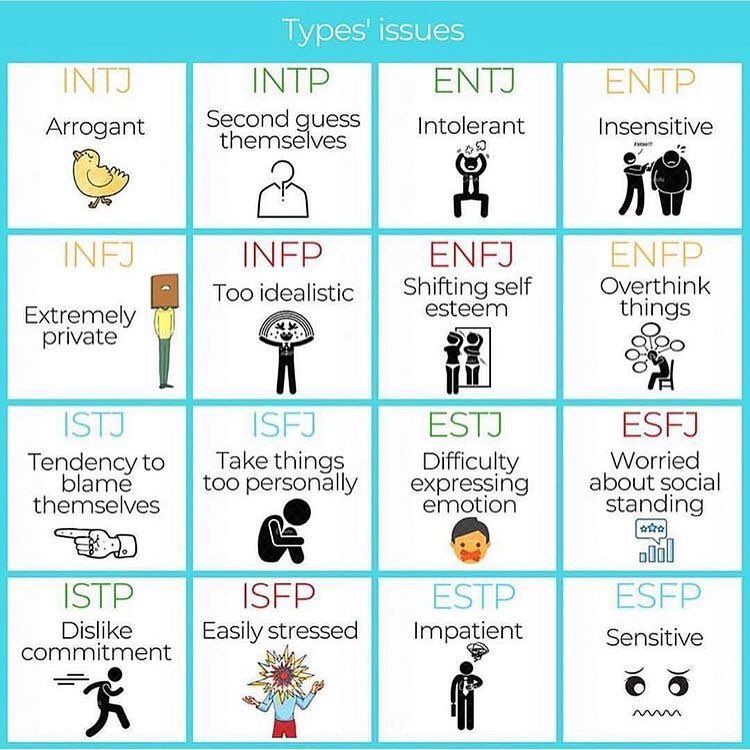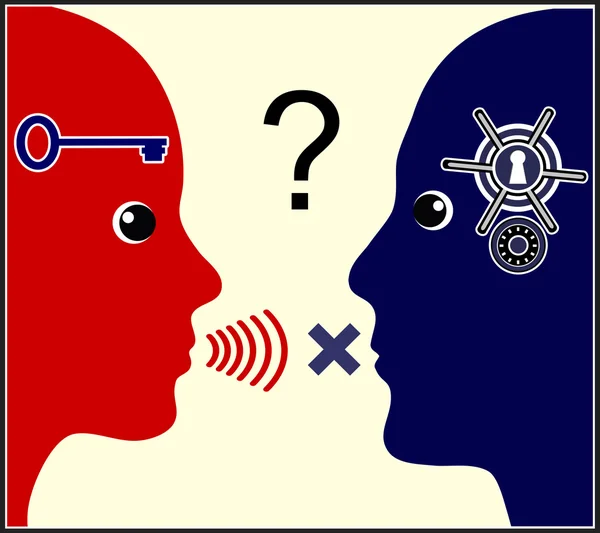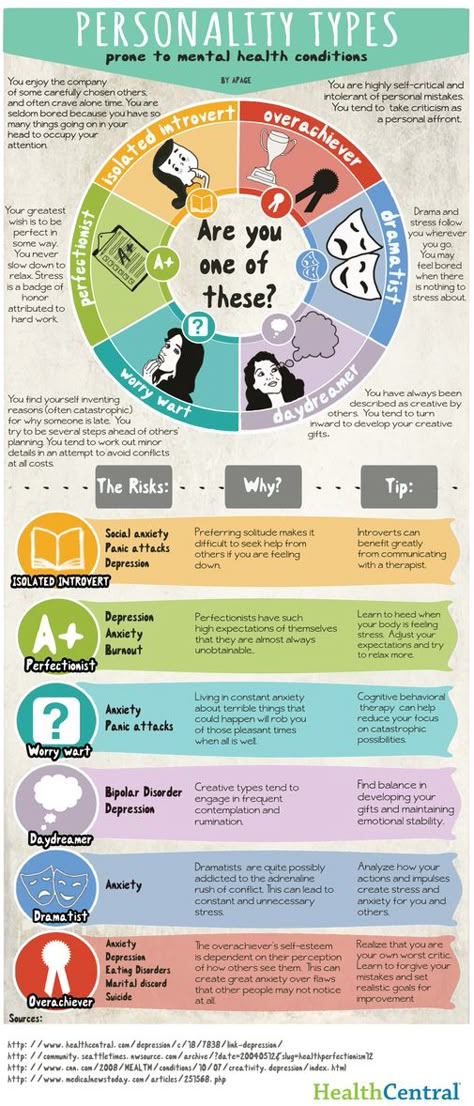Low eq high iq
|
THERAPY begin therapy contact me TOPICS |
Home / My Credentials / Counseling Philosophy / Online Therapy Risks & Benefits / Services & Fees / Confidentiality / Begin Therapy / In Crisis Now? / Contact Me / Carl's YouTube Videos / Sitemap |
|
To answer this question, we need to understand the difference between Emotional Intelligence (EQ) and Intelligence Quotient (IQ). I define
EQ as
“the ability to process painful
emotions in healthy and effective ways.”
Thus, high EQ means I have good
skills in managing painful emotions.
Low EQ means I have poor skills in managing painful emotions. For example, high EQ would allow me to deal with the emotions of losing a valued job in healthy and effective ways, such as by acknowledging my feelings, relying on my social supports, practicing self-care, empowering myself to apply for other jobs, and/or using other effective coping skills. Low EQ would cause me to deal with the pain of the same situation in ineffective, destructive, or self-destructive ways, such as by drinking, drugging, self-cutting, self-loathing, catastrophizing, hopelessness, denial, emotional eating, avoidance, or other maladaptive ways. For our purposes, I define IQ as “the ability to learn and
use one’s thinking mind to skillfully solve problems.”
High IQ means I am skilled at solving problems through learning and
reasoning. Low IQ means I am not skilled at solving problems through
learning and reasoning. Thus, EQ is about one’s ability to process painful emotions, whereas IQ is about one’s ability to use learning and reasoning to solve problems. Now to answer the question, “Why do some smart people keep making the same dumb mistakes." Well, it's because their low EQ has turned their high IQ into a slave! So, how does this happen? By definition low EQ means
that a person uses ineffective or unhealthy strategies for dealing with
emotional pain. But why would a
smart person keep using these strategies if they don’t work? Because
low EQ strategies, such as drinking, over-eating, denial, avoidance,
etc., often give some immediate relief from pain but in the long run actually increase pain, resulting in,
"Short term gain, but long time
pain!" For example, Jane discovers that drinking alcohol gives
immediate relief from her anxiety, but the use of alcohol to manage
chronic anxiety can eventually lead to addiction, which just adds
another problem to Jane's life. So the rule of thumb is this: If the need for immediate relief from emotional pain is strong enough, then high IQ persons with low EQ skills will keep relying on ineffective low EQ strategies, despite long-term negative consequences, because the emotional need for immediate relief from pain hijacks their normally high IQ into rationalizing, minimizing, and denying that their way of "coping" is causing problems. In other words, the person's thinking mind (IQ) becomes slave to his or her emotional needs as low EQ overrides high IQ, which is why smart people can keep making the same dumb mistakes over and over. Below is Carl's 6-minute YouTube video of this article: Of
course, addiction is an obvious example of an emotional need over-riding
high IQ. Unhealed wounds from childhood often have low EQ ways of defending against feeling the pain of those wounds, which is precisely why they remain unhealed. Instead of working through the pain in healthy ways, we use primitive “defenses” to try to wall off the pain, which usually involves enlisting our normally intelligent mind to distort reality through denial, rationalization, blame, minimization, or other defense mechanisms of the mind. So, if you are a person who keeps making
the same mistakes over and over, how do you fix this? The short answer
is that you need to identify the strong emotional needs that have
hijacked your high IQ and then learn new high EQ skills to replace the
low EQ strategies so you can heal your emotional wounds, which will
allow you to make better decisions for yourself and live a more
fulfilling life. Here are some examples of Low EQ Strategies: drinking, drugging, or any kind of addiction or compulsive behavior; recurring thought patterns of self-loathing, hopelessness, catastrophizing, or victimization; avoidance, denial, minimization, perfectionism, and procrastination; using anger as a shield to avoid dealing with unhealed wounds; using codependency as a distraction from dealing with unhealed wounds; obsessing on what you can’t control while ignoring what you can control; passive, aggressive, or passive aggressive communication skills; refusing to ask for help or listen to feedback from trusted others. Here are some examples of
High EQ Skills: focusing on what you can control; using mindfulness
and relaxation skills; learning assertiveness and other effective
communication skills; using self-nurturing and rational self-talk; being
able to ask for help; listening to feedback from trusted others; owning
mistakes without beating up on self; developing an “attitude of
gratitude,” seeing the glass half-full, and other techniques that you
allow to see a balanced picture of your life rather than just focusing
on the negatives; learning anger management and stress management
skills; obtaining counseling, attending support groups, journaling, and
talking about your issues so as not to repress them; and taking
medications when appropriate. In summary, in order to avoid making the same dumb mistakes over and over, you must learn to identify the strong emotional needs and low EQ strategies that perpetuate the mistakes and then replace them with high EQ skills that actually deal with the emotional pain in effective and healthy ways. Of course, to do this you must be able to break through the denial, blame, rationalization, and minimization that maintain the low EQ strategies, which can be difficult to do since these defense mechanisms create blind spots. Thus, if you feel stuck and would like help uncovering your blind spots and developing high EQ, then click on the photo below to apply for therapy. |
|
|
To subscribe to
my YouTube channel, click on the button: To follow my posts on
Facebook,
please click the Like and/or Share buttons below: Click on the photo below to request online therapy.  . .
for a new beginning... Home / My Credentials / Counseling Philosophy / Online Therapy Risks & Benefits / Services & Fees / Confidentiality / Begin Therapy / In Crisis Now? / Contact Me / Carl's YouTube Videos / Sitemap Copyright 2005-2022 Serenity Online Therapy |
Signs You have a high IQ, But Not EQ – Psych3Go
Measurements of intelligence comes in many different forms, but the two you probably hear the most about are IQ and EQ. To better understand what these two are and how they relate, in this article, we’ll be comparing the two and seeing signs that you have a high IQ but not EQ.
What is IQ?IQ refers to your intelligence quotient. This is usually derived from a test that assesses your overall ability to process and relate information, recognize patterns, and access working memory, among other factors (Stevens 2019).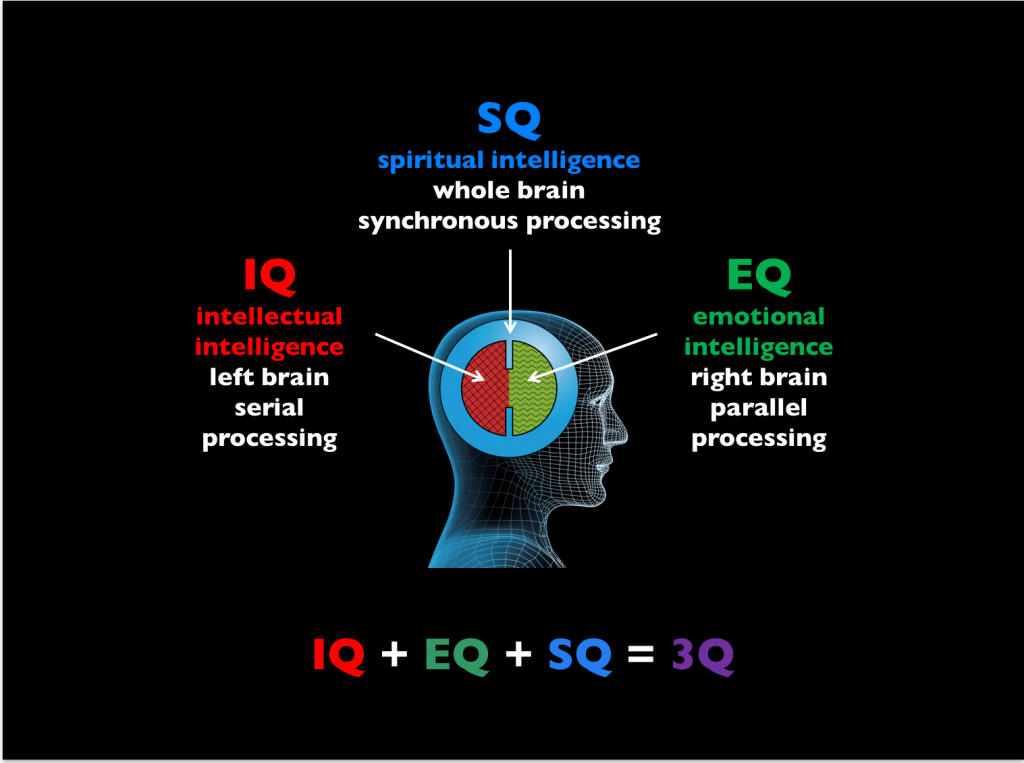 IQ is generally thought to be influenced primarily by genetics but can increase or decrease slightly based on certain factors.
IQ is generally thought to be influenced primarily by genetics but can increase or decrease slightly based on certain factors.
EQ refers to your emotional intelligence quotient. This refers to your ability to understand, identify, and control your emotions (Benedict 2005). Unlike IQ, EQ is thought to be more fluid and can change over time (Bradberry 2021). Also unlike IQ, EQ is not typically tested in the same way. While typically people with high IQ’s will also have a high EQ, the two work independently from one another.
With that said, here are some signs:
1. You Feel Emotions Intensely, But Have Difficulties Controlling ThemHigh intelligence is associated with intense emotionality. You may find yourself reacting strongly to the world around you and have extra perceptiveness to your situation. While there are many benefits to this including having a strong sense for activism, appreciation for beauty, and deep empathy for others, it also comes with a number of downsides.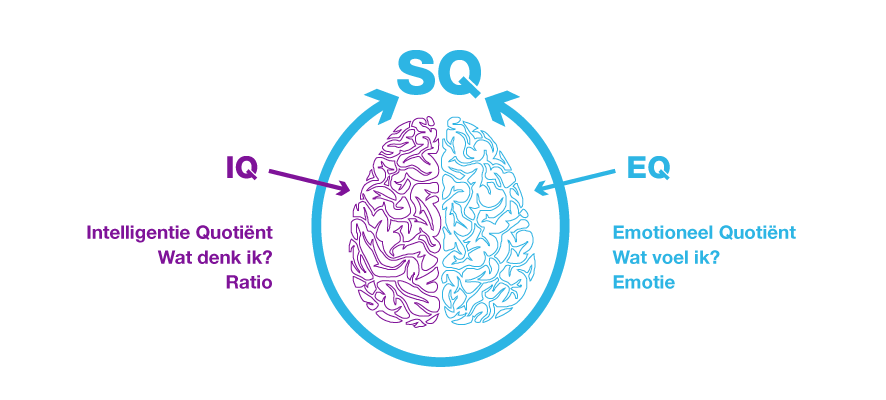 If you have a low EQ, you may find it harder to cope with the darker side of having intense emotions (Bradberry 2021). Emotions can overwhelm you and you may have difficulties managing them which can lead to you lashing out at others, turning to substances, or finding some other unhealthy way to cope with your situation.
If you have a low EQ, you may find it harder to cope with the darker side of having intense emotions (Bradberry 2021). Emotions can overwhelm you and you may have difficulties managing them which can lead to you lashing out at others, turning to substances, or finding some other unhealthy way to cope with your situation.
Highly intelligent people often achieve a lot and with ease, especially if you’re in an environment that allows you to grow. While high achievement is not necessarily a “requirement” for all highly intelligent people, they often find that their gifts and unique abilities can drive them to do great things. However, if you have a low EQ, you may find yourself getting caught up in the small details as a perfectionist. Perfectionism can slow your productivity, stress you out, and make you difficult to work with. Working to ease this tendency can make projects flow more peacefully, quickly, and collaboratively.
People with high IQ’s often report difficulties in their relationships. You may find yourself feeling misunderstood, overlooked, and having a hard time relating to others. EQ can play a factor in this as well. People with low EQ’s tend to have similar issues and may find themselves further struggling with empathy, keeping a two-way conversation, and maintaining a connection to others.
4. You ProcrastinateProcrastination is generally associated with having an high IQ. Not necessarily out of laziness, but as a way to take the time to consider ideas before jumping in. Additionally, having a higher IQ can mean the riskiness of putting something off is less than what someone else may struggle with. However, procrastination is also associated with having a lower EQ. This can be attributed to the added stress in delaying an important task which can be counterproductive in some circumstances.
5. You Work Hard, But Neglect Self-care
You Work Hard, But Neglect Self-careHighly intelligent people tend to care a lot about the projects they are working on and can tirelessly pursue them. However, with a low EQ, you may find that producing a solid product can come at the expense of your physical and emotional well-being. You may work late into the night on an assignment, while skipping meals and sacrificing sleep. Finding ways to balance your hard work and self-preservation will be beneficial to you and your projects.
6. You’re ImpulsiveDid you know that there is a correlation between impulsivity and and a high IQ? The same can be said about having a low EQ though. While people with a high IQ can be incredibly methodical, at the same time they may find themselves jumping into situations and “winging it.” This type of risky impulsive behavior can come with a plethora of consequences that seem counterproductive. Having a low EQ can also attribute to similar behaviors. While generally those with high IQ’s may find improvising easy as they can easily navigate problems that arise, having a low EQ as well can lead to even riskier impulsive behaviors.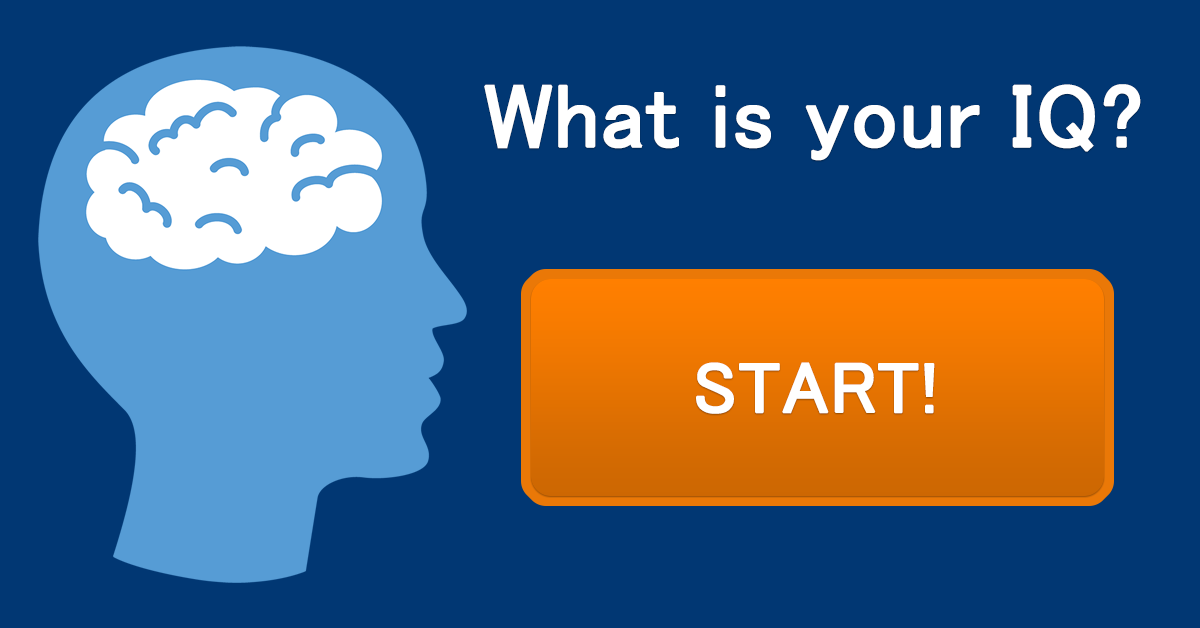 With increased emotional intensity, having a low EQ in this area can lead to risk-taking behaviors involving substances and jumping headfirst into situations without thinking about potential consequences.
With increased emotional intensity, having a low EQ in this area can lead to risk-taking behaviors involving substances and jumping headfirst into situations without thinking about potential consequences.
While generally having a high IQ is associated with a high EQ, this is not always the case. Being in tune with your emotional state is extremely important for your wellbeing. Finding ways to be more mindful and self-caring can be a great way to unleash even more of your potential. We hope you were able to find this article insightful, and we encourage you to share your thoughts on it in the comments below.
References:- Benedict, C. (2005). Emotional Intelligence EQ vs. IQ: Why Do Some Smart People Keep Making the Same Dumb Mistakes? Serenity Online Therapy. http://serenityonlinetherapy.com/iq-eq.htm
- Bradberry, T. (2020, February 28). 14 signs that you’re incredibly emotionally intelligent — and a high performer. Business Insider.
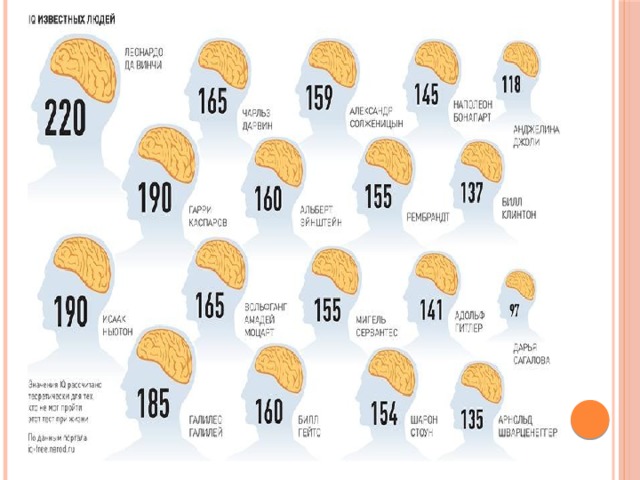 https://www.businessinsider.com/high-performers-emotionally-intelligent-signs-2019-4?international=true&r=US&IR=T
https://www.businessinsider.com/high-performers-emotionally-intelligent-signs-2019-4?international=true&r=US&IR=T - Bradberry, T. (2021, August 26). article. TalentSmart. https://www.talentsmarteq.com/articles/11-Signs-That-You-Lack-Emotional-Intelligence-2147446699-p-1.html/
- Cherry, K. (2020, July 13). 9 Signs of Low Emotional Intelligence. Verywell Mind. https://www.verywellmind.com/signs-of-low-emotional-intelligence-2795958
- Haden, J. (2021, November 7). 4 Red Flags That Actually Prove You’re Smarter Than You Think, Backed by Science. Inc.Com. https://www.inc.com/jeff-haden/4-intelligence-level-red-flags-that-actually-prove-youre-smarter-than-you-think-backed-by-science.html
- Heingartner, D. (2021, September 22). IQ and EQ: new study finds that high-IQ people also have more emotional intelligence. PsychNewsDaily. https://www.psychnewsdaily.com/iq-and-eq-gifted-people-also-have-a-bit-more-emotional-intelligence/
- Raypole, C.
 (2020, December 15). 11 Signs of Intelligence Proving There’s More Than One Way to Be a Genius. Healthline. https://www.healthline.com/health/signs-of-intelligence#empathy
(2020, December 15). 11 Signs of Intelligence Proving There’s More Than One Way to Be a Genius. Healthline. https://www.healthline.com/health/signs-of-intelligence#empathy - Stevens, A. (2019, December 3). What is IQ — and how much does it matter? Science News for Students. https://www.sciencenewsforstudents.org/article/what-iq-and-how-much-does-it-matter
Leave your vote
3 points
UpvoteDownvote
Total votes: 5
Upvotes: 4
Upvotes percentage: 80.000000%
Downvotes: 1
Downvotes percentage: 20.000000%
Categories: Casual, Cognitive Psychology, Intelligence, Thoughts, Uncategorized
Tagged: EQ, IQ
Sidney
Sid Thompson is a writer for Psych3Go. With a passion for journalism, filmmaking, and topics in psychology, he aims to share new ideas in a concise and factual manner.
Does a high IQ mean that a person is smart? | Eternal questions | Question-Answer
Arina Zabgaeva
Estimated reading time: 6 minutes
6301
Category: Medicine
To determine the level of IQ - intelligence quotient - you must pass a special test: the examinee is asked to complete several tasks that are aimed at testing his intellectual abilities. In some countries, for example, in the USA, a high level of IQ is one of the mandatory criteria for admission to one or another elite school. Nevertheless, there is a growing debate in the scientific community about the accuracy of the results of this test and its appropriateness. Whether the value of IQ really determines the mental abilities of a person, AiF.ru understands.
In some countries, for example, in the USA, a high level of IQ is one of the mandatory criteria for admission to one or another elite school. Nevertheless, there is a growing debate in the scientific community about the accuracy of the results of this test and its appropriateness. Whether the value of IQ really determines the mental abilities of a person, AiF.ru understands.
What do IQ tests miss?
For some, the mind is a predisposition to an analytical type of thinking and the ability to solve mathematical problems, for others it is a rational approach to a situation, the ability to quickly find the most correct solution. But there are also creative people whose abilities and skills are also the result of mental activity. Because of the complexity of the human brain, some scientists, such as Keith Stanovich, Professor of Applied Psychology and Human Development at the University of Toronto , doubt that it is possible to measure the full range of intellectual abilities using one "universal" test.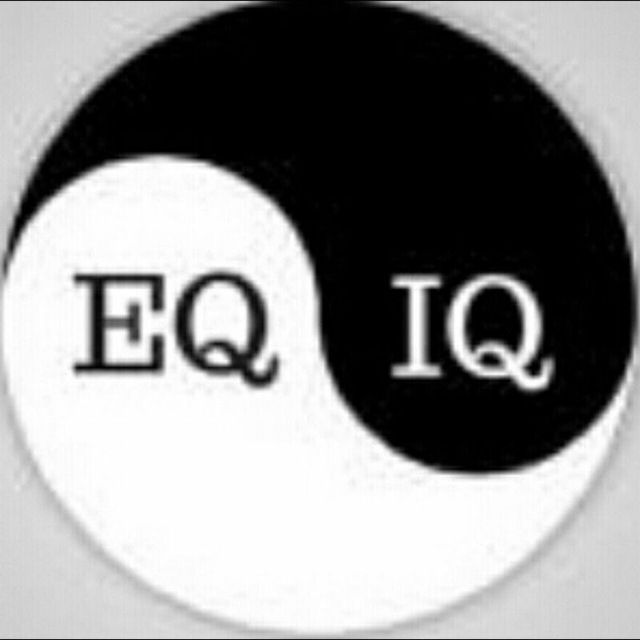 In his study "Rational and Irrational Thinking: What IQ Tests Miss," Stanovich argues that most IQ tests are focused on the rational type of thinking and measure not so much the level of intelligence as the ability to this type of thinking. It turns out that even if a person’s intellectual abilities are sufficiently developed, but at the same time he is prone to an irrational type of thinking, his level of intelligence will be defined as low.
In his study "Rational and Irrational Thinking: What IQ Tests Miss," Stanovich argues that most IQ tests are focused on the rational type of thinking and measure not so much the level of intelligence as the ability to this type of thinking. It turns out that even if a person’s intellectual abilities are sufficiently developed, but at the same time he is prone to an irrational type of thinking, his level of intelligence will be defined as low.
Is high IQ always a good thing?
“Initially, the idea that high IQ is an indicator of high intelligence was undeniable. Tests were developed for this and are used for this: to select or highlight the most intellectually gifted people with the help of IQ. Today, an alternative point of view has appeared: the higher the IQ, the more ambiguous the forecast of intellectual development. Traditional testologists (testology is an interdisciplinary science about the creation of measuring diagnostic methods - ed. note) do not recognize this position, they are sure that a high IQ is always a positive forecast. However, this is not the case,” says Marina Kholodnaya, Doctor of Psychology, Professor at the Institute of Psychology of the Russian Academy of Sciences .
However, this is not the case,” says Marina Kholodnaya, Doctor of Psychology, Professor at the Institute of Psychology of the Russian Academy of Sciences .
Kholodnaya cites as an example an article by the famous American psychologist Carl Simonton , in which he directly pointed out that high intelligence is more bad than good. Such a paradox, according to Kholodnaya, is easy to explain. “Firstly, students with high (and especially ultra-high) IQ often do poorly in school. Such children are called “twice special”. On the one hand, they have a very high IQ, on the other hand, they cannot master basic reading and arithmetic courses. So far, psychologists cannot explain this. After all, it was initially assumed that the higher the IQ, the higher the success of training,” says Kholodnaya. - Secondly, it turned out that the owners of high IQ have a number of personality problems, and quite serious ones - impulsivity, a high level of aggression, difficulties in communication, isolation, emotional instability - up to any mental deviations.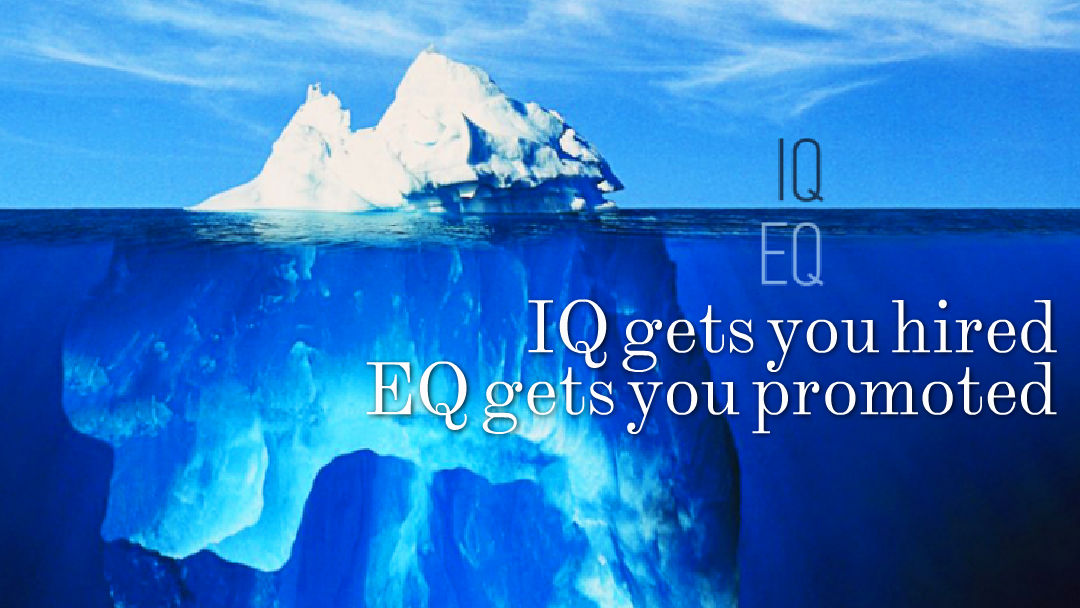 Third, many studies have shown that high IQ is not associated with creativity. That is, a child or teenager has very high results on intelligence tests, but he is not capable of creative activity and his performance on creativity tests is low. He does not manifest himself as a creative person even in the conditions of educational activity: he does not invent, he does not invent.
Third, many studies have shown that high IQ is not associated with creativity. That is, a child or teenager has very high results on intelligence tests, but he is not capable of creative activity and his performance on creativity tests is low. He does not manifest himself as a creative person even in the conditions of educational activity: he does not invent, he does not invent.
Thus, a person with a high IQ can have a constructive and a destructive variant of development, as noted by Marina Kholodnaya. And it is impossible to argue that a high IQ is an unambiguous and direct indicator of a high level of intellectual development (and even more so - intellectual giftedness).
Low IQ - bad or not?
“Low IQ is not always a bad thing,” Kholodnaya says, and gives several examples to support her words. The first one is a study of the IQ level in children with ZPR (delayed cognitive development). Despite low test scores, these children are very productive and original in their intellectual behavior. “Even a new theory has emerged: the mindfulness theory. "Mindfulness" is selective meaningfulness. The manifestation of this quality is just possible with a low level of intelligence, ”explains Marina Kholodnaya. A good example of "mindfulness" is the study of the American by psychologist Robert Stenberg on measuring the intelligence level of adolescents in Africa using IQ tests. Since the tests were developed in Western Europe, it is not surprising that the results of representatives of another culture turned out to be extremely low. At the same time, the children showed miracles of ingenuity, but in a specific type of activity: collecting medicinal herbs. This is "mindfulness".
“Even a new theory has emerged: the mindfulness theory. "Mindfulness" is selective meaningfulness. The manifestation of this quality is just possible with a low level of intelligence, ”explains Marina Kholodnaya. A good example of "mindfulness" is the study of the American by psychologist Robert Stenberg on measuring the intelligence level of adolescents in Africa using IQ tests. Since the tests were developed in Western Europe, it is not surprising that the results of representatives of another culture turned out to be extremely low. At the same time, the children showed miracles of ingenuity, but in a specific type of activity: collecting medicinal herbs. This is "mindfulness".
Marina Kholodnaya also notes that the IQ of many experts in certain fields - highly qualified professionals, people with extensive experience and knowledge - as a rule, is in the range of 116-118 units, which is an average. “This happens because other mechanisms begin to work in the intellect of an expert, which are extremely important for assessing real intellectual achievements, in particular, conceptual, reflective, intentional (so-called intuition) abilities.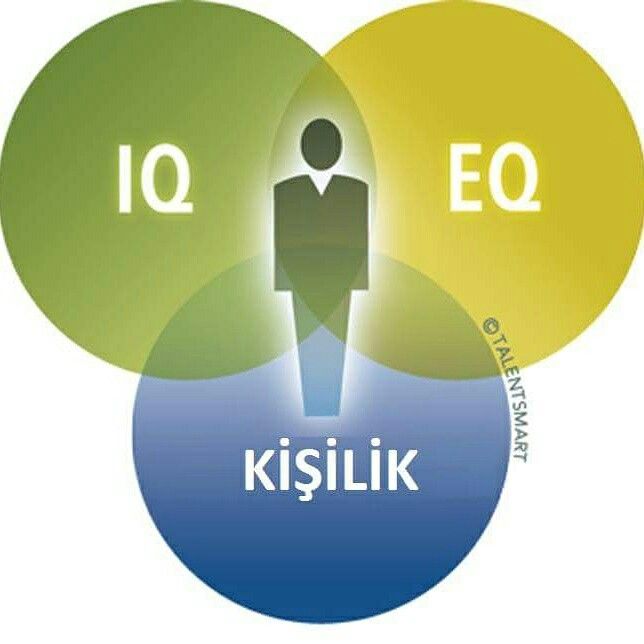 That is, everything that is, by definition, absent and not taken into account in intelligence tests, ”explains the professor. Finally, the elderly. Their IQ test scores drop sharply because they perform poorly on tasks: their memory, attention, and visual coordination are deteriorating. At the same time, older people can maintain intellectual productivity for quite a long time, they acquire such a quality as wisdom. “Wisdom is the highest level of intellectual development of a person. A wise person has the highest intellectual resource, but it does not manifest itself in the performance of tests,” Kholodnaya believes.
That is, everything that is, by definition, absent and not taken into account in intelligence tests, ”explains the professor. Finally, the elderly. Their IQ test scores drop sharply because they perform poorly on tasks: their memory, attention, and visual coordination are deteriorating. At the same time, older people can maintain intellectual productivity for quite a long time, they acquire such a quality as wisdom. “Wisdom is the highest level of intellectual development of a person. A wise person has the highest intellectual resource, but it does not manifest itself in the performance of tests,” Kholodnaya believes.
In conclusion, Marina Kholodnaya comes to the following conclusion: “If a low or average IQ is recorded, this does not mean at all that a person has a low or average level of intelligence. It often happens that with low and medium IQ values, we can talk about a high level of intellectual development of a person. This can be called the paradox of IQ tests. This paradox is explained not so much by the limited capabilities of IQ tests, but by the complexity of the human intellect.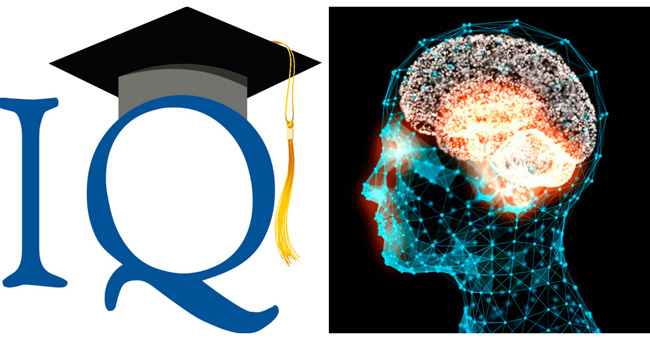 The study of its nature is one of the promising areas of modern psychology.
The study of its nature is one of the promising areas of modern psychology.
IQbrain
Next article
The most interesting in social networks
Media news2
High IQ is more common among physicists and theorists than among artists
So the little girl is smarter than them and most adults? The same IQ for scientists averages about 125 points, and for simple office clerks 100 - 105 points. This begs the question: Is IQ lying? And in general, is it possible to objectively measure intelligence and reliably find out who is smarter? The correspondent of "RG" talks about this with the professor of the Moscow City Psychological and Pedagogical University Victoria Yurkevich.
Victoria Solomonovna, can we compare the strength of the intellect of two people, as if we were comparing their physical strength in tug of war or in arm wrestling?
Viktoria Yurkevich: There is no instrument for measuring intelligence or giftedness in nature.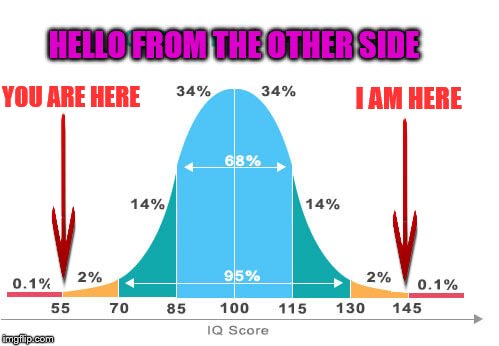 Even if you give people the same intelligence tests, comparing their results will be incorrect. Each brain works differently, it is oriented to a greater extent to a particular area of activity.
Even if you give people the same intelligence tests, comparing their results will be incorrect. Each brain works differently, it is oriented to a greater extent to a particular area of activity.
How to find out who is smarter: a famous physicist or a legendary violinist? Each one is great and incomparable in his field. But there are no single criteria by which their mental development could be compared.
What about the IQ test?
Victoria Yurkevich: It reveals only intellectual abilities in the field of general intelligence, that is, the ability to draw logical conclusions, structure information. It is known that the highest IQ is usually among theoretical physicists. They constantly calculate the most complex speculative models, this type of thinking is debugged, and it is easier for them to cope with these tests. But, let's say, artists usually do not gain comparable points. But can we really say that Aivazovsky is more stupid than Landau? Of course not. They just have different types of intelligence. An artistically gifted person usually performs significantly worse on IQ tests than mathematicians or techies. But no conclusion can be drawn from this.
They just have different types of intelligence. An artistically gifted person usually performs significantly worse on IQ tests than mathematicians or techies. But no conclusion can be drawn from this.
What is to be done with a young American woman who at the age of three has beaten respectable adult men?
Victoria Yurkevich: IQ is the ratio of a person's mental maturity to his biological age. Initially, it was invented to select school students who are able to master the program. Then the researchers, with the help of child psychologists and teachers, formed a set of knowledge and skills that a child should have at a certain age. If you know how to do everything that is supposed to be at your age and nothing more, you have an IQ of exactly 100. A hundred is the norm. Mastered something extra - keep your 105, 120 or even 140 points. Did not have time or could not learn something in time - you will get 95, 92, 87 points. And so on.
By the way, IQ less than 90 is a sign of developmental delay. If we return to the girl and Obama, then the comparison itself is incorrect. It is possible that the girl knows how to do things that her peers have no idea about. Compared to other three-year-olds, she is precocious. But if you compare her with any adult, and especially with such an intellectual as the current president of the United States, she will still be just a small child. Their IQ scores are measured on different scales. These are incomparable quantities.
If we return to the girl and Obama, then the comparison itself is incorrect. It is possible that the girl knows how to do things that her peers have no idea about. Compared to other three-year-olds, she is precocious. But if you compare her with any adult, and especially with such an intellectual as the current president of the United States, she will still be just a small child. Their IQ scores are measured on different scales. These are incomparable quantities.
If the IQ index does not make it possible to compare the strength of the intellect, why is it so popular, including among psychologists?
Victoria Yurkevich: Here the situation is much more complicated. There are six basic types of intelligence. First, intellectual or logical is the ability to understand, comprehend and compare. The second is academic, it implies a good assimilation of ready-made knowledge. Social - its owners easily understand the mood and interests of people, they can captivate them with them. There is also artistic intelligence, it implies the ability to operate with images, create them, understand other people's metaphors and allegories, practical - they usually say "golden hands" about such people, they can assemble, make, repair or design anything, and, finally, sensorimotor is the ability to control your body. Each person has all kinds of intelligence. But some will be dominant, others are pronounced, and somewhere there may be failures. It is precisely because different types of intelligence work for a physicist and an artist that it is very difficult to compare them with each other. Here is mathematics and, for example, a biologist still all right, they have a mindset at least approximately similar.
There is also artistic intelligence, it implies the ability to operate with images, create them, understand other people's metaphors and allegories, practical - they usually say "golden hands" about such people, they can assemble, make, repair or design anything, and, finally, sensorimotor is the ability to control your body. Each person has all kinds of intelligence. But some will be dominant, others are pronounced, and somewhere there may be failures. It is precisely because different types of intelligence work for a physicist and an artist that it is very difficult to compare them with each other. Here is mathematics and, for example, a biologist still all right, they have a mindset at least approximately similar.
But whatever a person's talent, he will not be able to realize it without logical intelligence. The artist will not appreciate the beauty of the landscape or the model, the actor will not understand the director's intention and will not figure out how to play this or that scene.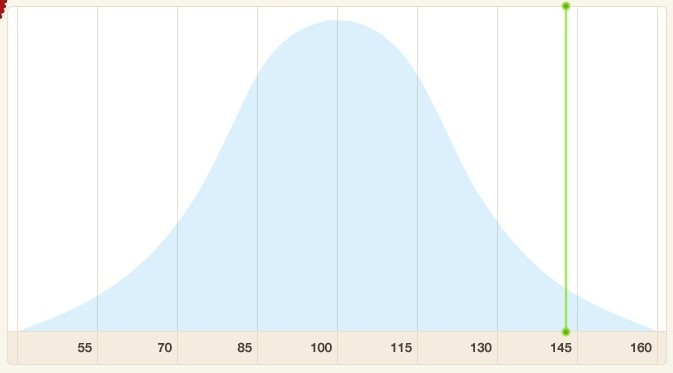 The athlete will not calculate his strength and will collapse from fatigue in the middle of the distance.
The athlete will not calculate his strength and will collapse from fatigue in the middle of the distance.
The IQ index measures exactly logical intelligence. For those who excel in science, its value is likely to be, relatively speaking, more than 130 points. For an actor or athlete to succeed in their profession, a more modest level of 110 points will be enough. This does not indicate that they are less intelligent, it is just that their talent is revealed through other mechanisms that cannot be taken into account in this test. But when IQ is less than 90 points, we can talk about mental retardation. With such intelligence, it is extremely difficult to succeed in anything. Although there are exceptions.
It turns out that the IQ index does not mean much. Why then does it continue to be used?
Victoria Yurkevich: By itself, the IQ index does not allow us to say who is smart and who is stupid. But at school for identifying mentally gifted children, it is very useful. Those who have been given this or that kind of talent need a different type of training, other forms of pedagogical and psychological support, otherwise their high abilities will not develop, and, most importantly, they will not be able to be realized in the future. How does it usually work out? A gifted child comes to school. The first few years, without stress, he gets his fives, relaxes. In order to develop intellectual and volitional qualities, the student definitely needs a challenge, he must face difficult and interesting tasks. There are no such? Write lost. After such training, nine out of ten promising boys and girls have only traces of their former giftedness.
Those who have been given this or that kind of talent need a different type of training, other forms of pedagogical and psychological support, otherwise their high abilities will not develop, and, most importantly, they will not be able to be realized in the future. How does it usually work out? A gifted child comes to school. The first few years, without stress, he gets his fives, relaxes. In order to develop intellectual and volitional qualities, the student definitely needs a challenge, he must face difficult and interesting tasks. There are no such? Write lost. After such training, nine out of ten promising boys and girls have only traces of their former giftedness.
A very extensive monitoring of giftedness was carried out at our university. 63 schools, thousands of children, hundreds of teachers participated. It turned out that, firstly, there are intellectually gifted children in almost every school, and secondly, a significant part of teachers do not distinguish intellectually gifted children from well-trained ones. And they do not help the development of intellectual talents.
And they do not help the development of intellectual talents.
As a result, we are losing people who in the future could be an innovative resource for society. But even this is not the main thing. An unrealized former gifted child, who, according to a well-known expression, "his whole future is in the past," is always an unhappy person. Ambitions have not gone away, and opportunities have already been missed.
Now there are a variety of ways to identify a person's giftedness. The IQ test is one of the most technologically advanced. You can quickly and without special costs examine many at once. But the results of these tests should be treated very carefully.
What is the danger?
Victoria Yurkevich: There is a norm, there is a lower limit of the norm and there are the top five percent of the results - these are the most gifted students. We measure it a little differently, but, for information, an IQ of 127 and above indicates a child’s serious abilities, more than 140 is already a bright giftedness. But only high results can be taken seriously. That is, if the student did the work for high scores, this directly indicates his giftedness. And if the result turned out to be very mediocre or even frighteningly low, say, 80-90 points, sometimes it doesn't mean anything at all. The child could feel bad, be upset about something, be nervous - there are a whole lot of reasons why on this particular day he coped poorly with this particular task. Only after a special diagnosis, experts can name the true cause of such results.
But only high results can be taken seriously. That is, if the student did the work for high scores, this directly indicates his giftedness. And if the result turned out to be very mediocre or even frighteningly low, say, 80-90 points, sometimes it doesn't mean anything at all. The child could feel bad, be upset about something, be nervous - there are a whole lot of reasons why on this particular day he coped poorly with this particular task. Only after a special diagnosis, experts can name the true cause of such results.
When selecting a candidate for a vacancy, specialists conduct a whole battery of tests to understand whether this person is suitable for a particular job or not. They look at him from different angles, check all aspects and types of intelligence, his interests and motivation, only after that they make a decision. And although no one can give an absolute guarantee, in the vast majority of cases their recommendations are justified.
Even when selecting gifted students, the IQ test is just one of a series of indicators. The interests of the child, his motivation, school and extracurricular achievements - only all this in combination can show the true level of a child to a professional.
The interests of the child, his motivation, school and extracurricular achievements - only all this in combination can show the true level of a child to a professional.
too smart
It is still unknown who is the biggest problem for a school teacher: a poor student or a gifted child. It would seem that if a student from the first grade easily and naturally gets solid fives, this is very good. However, there is a big danger here.
- If a student is too easy to learn, and he does not encounter difficulties and easily clicks all the teacher's tasks, this is extremely bad for his development, - warns Victoria Yurkevich. - The child gets used to grasping everything on the fly and not to strain. And why, if he is quite successful even relaxed? As a result, neither the abilities nor the personality of the child develop to the required extent.
Such a student will quickly move from "five" to "three", he will not develop his abilities, study will turn into hard labor for him.

 For example, high IQ might allow me to learn to
use a new computer program in an efficient manner while Low IQ would
make that task more difficult.
For example, high IQ might allow me to learn to
use a new computer program in an efficient manner while Low IQ would
make that task more difficult.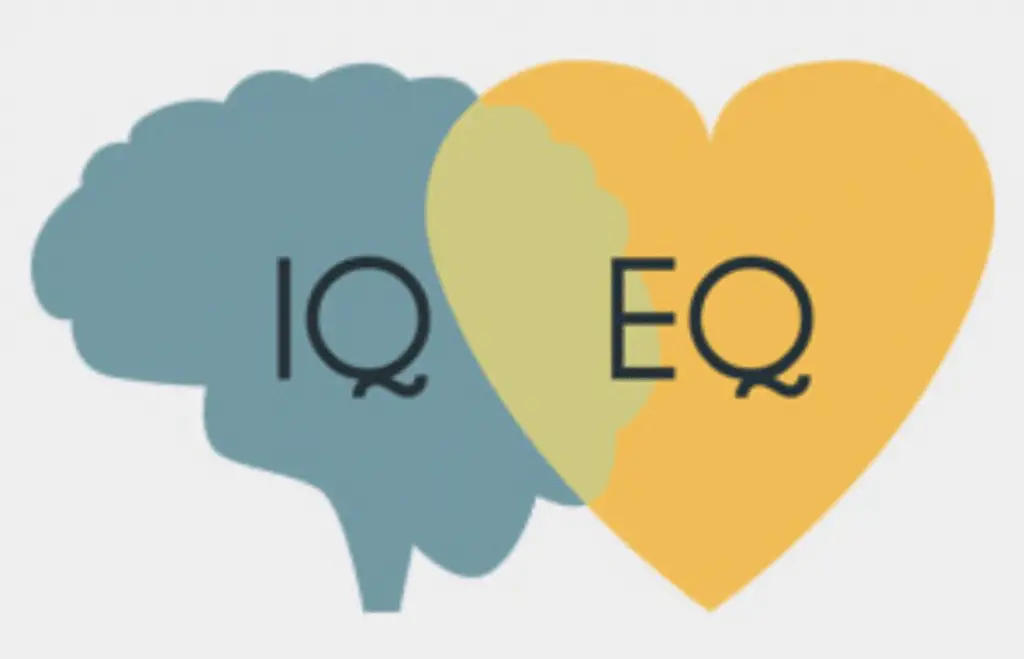 .
.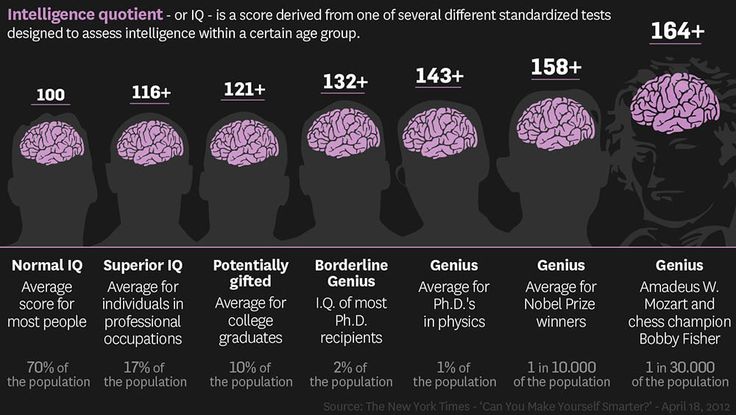 After all, haven't we all known smart people who keep abusing
alcohol or drugs despite significant
negative consequences? So, let’s look at a more subtle example.
Bob
had a difficult childhood.
His dad abandoned the family when he was six, and then his mother used
alcohol to cope and was often irritable, critical, and verbally abusive
to Bob. She shamed him terribly whenever he did something wrong, even
something minor. So Bob adapted to this sad environment by never
admitting to making a mistake, which became his strategy for avoiding
his mother’s wrath. Over time, it became subconscious and automatic,
continuing into adulthood. Of course, this strategy spared some
short-term pain, but in the long-rum, it created many problems. Whenever
he received poor grades, he blamed the teachers. Whenever he made
mistakes at work, he blamed his boss. Whenever he treated his wife
poorly, he blamed her.
After all, haven't we all known smart people who keep abusing
alcohol or drugs despite significant
negative consequences? So, let’s look at a more subtle example.
Bob
had a difficult childhood.
His dad abandoned the family when he was six, and then his mother used
alcohol to cope and was often irritable, critical, and verbally abusive
to Bob. She shamed him terribly whenever he did something wrong, even
something minor. So Bob adapted to this sad environment by never
admitting to making a mistake, which became his strategy for avoiding
his mother’s wrath. Over time, it became subconscious and automatic,
continuing into adulthood. Of course, this strategy spared some
short-term pain, but in the long-rum, it created many problems. Whenever
he received poor grades, he blamed the teachers. Whenever he made
mistakes at work, he blamed his boss. Whenever he treated his wife
poorly, he blamed her. As a result, Bob never learned from his mistakes
because his emotional needs would not allow him to “own” them. Thus, he
never achieved his full potential in school, at work, or in his marriage
as a husband.
As a result, Bob never learned from his mistakes
because his emotional needs would not allow him to “own” them. Thus, he
never achieved his full potential in school, at work, or in his marriage
as a husband.